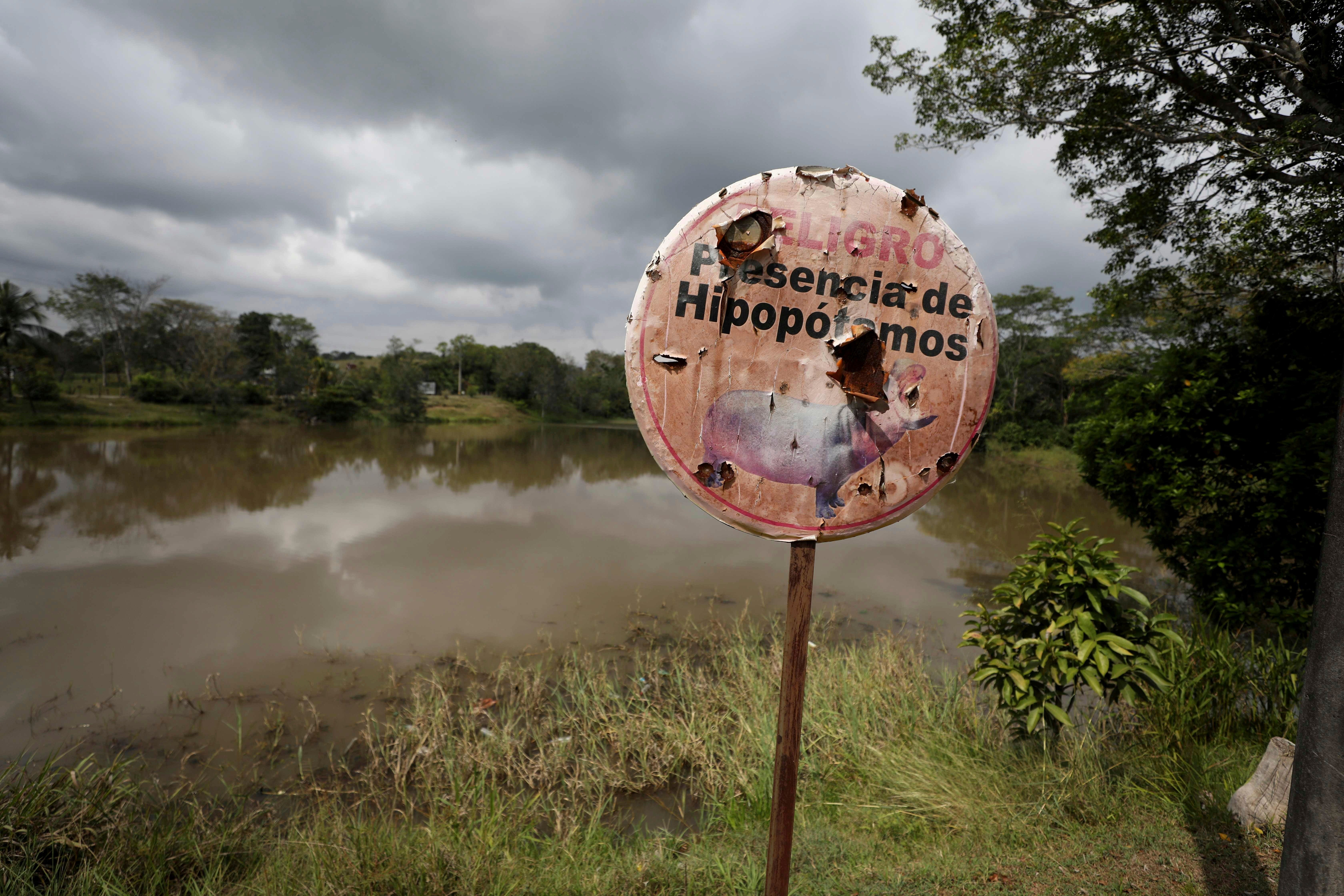Experts urge Colombia to cull drug kingpin Pablo Escobar’s hippos
Local love for legacy of drug kingpin's private zoo risks wiping out native species, scientists warn

Your support helps us to tell the story
From reproductive rights to climate change to Big Tech, The Independent is on the ground when the story is developing. Whether it's investigating the financials of Elon Musk's pro-Trump PAC or producing our latest documentary, 'The A Word', which shines a light on the American women fighting for reproductive rights, we know how important it is to parse out the facts from the messaging.
At such a critical moment in US history, we need reporters on the ground. Your donation allows us to keep sending journalists to speak to both sides of the story.
The Independent is trusted by Americans across the entire political spectrum. And unlike many other quality news outlets, we choose not to lock Americans out of our reporting and analysis with paywalls. We believe quality journalism should be available to everyone, paid for by those who can afford it.
Your support makes all the difference.They are a colony of the planet’s deadliest land mammals - and they owe their existence to one of humanity’s most notorious criminals. Now scientists have warned Pablo Escobar’s hippopotami must be executed to stop them causing death and destruction in the heart of Colombia.
Escobar, once one of the world’s most prolific drug traffickers, collected a range of illegally imported animals at his luxurious palace in the Colombian mountains during his life.
However while he and his criminal empire have both passed away, the legacy of his personal zoo lives on - with hippos that he acquired from a US zoo left to flourish in the tropical countryside and wetlands around his former base.
And while the Colombian government has attempted to control the reproduction of the animals, the number of hippos in the wilds around Puerto Triunfo has continued to increase from 35 to as many as 80 in the last eight years.
Scientists behind a study on the spread of the animals now say the choice is between culling the ancestors of the drug kingpin’s semi-aquatic specimens - or see numbers reach around 1,500 over the next 14 years, threatening biodiversity and risking citizen safety.
“I believe that it is one of the greatest challenges of invasive species in the world,” said Nataly Castelblanco-Martinez, an ecologist at the University of Quintana Roo in Mexico.
While posing a risk both to both people and animal populations in the are, the animals have been welcomed by locals due to the tourist money they bring to the region.
However experts say government efforts must go further if they are to stop the beasts destroying animal species and harming local populations.
The study assessing the hippo population in the region began last year after one of the animals chased and severely injured a poor farmer.
Ms Castelblanco-Martinez, the lead author on the paper published last month, added: “Everyone asks, ‘Why is this happening?’ Well, imagine a town of 50 people and you perform a vasectomy on one man and in two years on another man, obviously, that is not going to control the reproduction of the entire population,”
The researcher warned the surging number of hippos in the region could displace native populations like Antillean manatees - while another study last year from the University of California, San Diego, found the hippos are changing the quality of the water in which they spend much of their time and defecate.
While many of the animals kept by Escobar were relocated after his death in a shootout in 1993, the hippopotami were abandoned at his estate due to the financial and logistical challenge of moving them.
After his death in a shootout with authorities in 1993, most of the exotic animals were relocated or died. But the hippos were abandoned at the estate due to the cost and logistical issues associated with transporting 3-ton animals and the violence that plagued the area at the time.
Being left to their own devices allowed the species to thrive in the region between Medellin and Colombia’s capital, Bogota.
However their popularity has so-far led to significant pushback against efforts to reduce their population through culling efforts.
“The community keeps an eye on us to make sure that we are actually sterilising (the hippos) and not doing anything else,” said Gina Serna-Trujillo, a veterinarian who has conducted some of the sterilisations. “They love them.”
Ms Castelblanco-Martinez added: “We have other invasive species in Colombia that have undergone normal protocols, and no one ever makes a fuss because they are fishing lionfish,” she said referring to a fish native to the Indo-Pacific that is now an invasive species in the Atlantic Ocean.
“You can’t even talk about (culling hippos) because the rejection is staggering. … I am being called a murderer.”
Additional reporting by agencies


Join our commenting forum
Join thought-provoking conversations, follow other Independent readers and see their replies
Comments